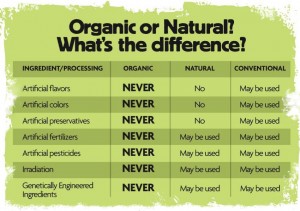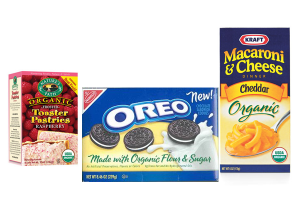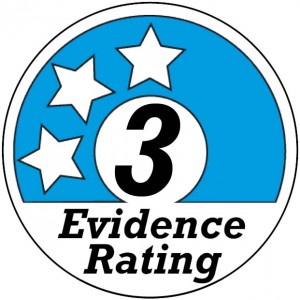All About Organic Foods
The idea of “eating organic” is one that everyone has heard something about. Organic foods are more popular than ever before a recent USDA economists reported that organic produce sales spiked from $5.4 billion in 2005 to an estimated $15 billion last year. We see them in every store, organic produce, organic meats and even organic fudge brownies. But do you really know what science has to say about these organic foods? What does organic mean? Are organic foods more nutritious? Are non-organic foods dangerous? Why are organic foods so expensive? With all of the questions surrounding organic food it’s important to understand exactly what’s going on behind all the commotion and if “eating organic” is right for you.
What Exactly Is Organic Food?
 With the craze of “eating organic”, it can be difficult to understand what it actually means to be ‘organic’. It is important to understand that eating organic doesn’t just mean eating fruits and vegetables that are grown pesticide free. Produce and non-meat ingredients that are certified organic are grown without synthetic fertilizers, Genetically Modified Organisms (GMO’s), ionizing radiation and synthetic additives. Certified organic meat, eggs, dairy products, and poultry come from animals that are raised outdoors rather than in small pens. The animals are fed organic diets and not given routine antibiotics or growth hormones.
With the craze of “eating organic”, it can be difficult to understand what it actually means to be ‘organic’. It is important to understand that eating organic doesn’t just mean eating fruits and vegetables that are grown pesticide free. Produce and non-meat ingredients that are certified organic are grown without synthetic fertilizers, Genetically Modified Organisms (GMO’s), ionizing radiation and synthetic additives. Certified organic meat, eggs, dairy products, and poultry come from animals that are raised outdoors rather than in small pens. The animals are fed organic diets and not given routine antibiotics or growth hormones.
Are Organic Foods More Nutritious?
Unfortunately not, but for many consumers that’s not the point. Many studies have been conducted over the past decade putting to bed this common misconception. Organic foods are no more “nutritious” than non-organic foods, however they may be much “healthier”. When making this type of claim it is very important to remember that nutritious does not mean healthy. When we say that organic foods are no more nutritious than non-organic foods, it simply means that an organic apple has exactly the same number of carbohydrates, sugars and vitamins as a non-organic apple. However, since organic foods are made without the use of synthetic chemicals, GMO’s, hormones or other products they are certainly a healthier alternative. By eating organic fruits, vegetables, and meats consumers can dramatically reduce the amount of synthetic chemicals they take in while at the same time receiving the exact same beneficial nutrients of non-organic foods.
Non-Organic Food Safety
 Reducing the consumption of potentially harmful synthetic chemicals is a major drive behind most organic consumers. But is this drive legitimate? With all the fuss about the potential dangers of pesticides and synthetic additives, we must stop and take a look at what the evidence has to say regarding the safety of these common chemicals. A systematic review ( high level research paper) published in July 2015 in the International Journal of Food Contamination concluded that dietary exposure to pesticides in the diet continue to be at levels far below those of health concern. The paper’s conclusion also stated:
Reducing the consumption of potentially harmful synthetic chemicals is a major drive behind most organic consumers. But is this drive legitimate? With all the fuss about the potential dangers of pesticides and synthetic additives, we must stop and take a look at what the evidence has to say regarding the safety of these common chemicals. A systematic review ( high level research paper) published in July 2015 in the International Journal of Food Contamination concluded that dietary exposure to pesticides in the diet continue to be at levels far below those of health concern. The paper’s conclusion also stated:
“Consumers should be encouraged to eat fruits, vegetables and grains and should not fear the low levels of pesticide residues found in such foods.”
Many experts are concerned that shoppers may miss out on the valuable nutrients in fruits and vegetables because of a fear that they are unsafe. Although they do contain chemicals that are harmful in large amounts, there is solid evidence that non-organic foods are safe. Regardless of the amounts found in conventionally grown products many still choose to avoid pesticides all together by purchasing organic foods.
Organic Junk Food
 Read food labels carefully. Just because a product says it’s organic or contains organic ingredients doesn’t necessarily mean it’s a healthier alternative. Some organic products may still be high in sugar, salt, fat or calories. Organic cookies, soda and cheesy mac may not contain harmful synthetic chemicals but they certainly contain harmful amounts of sugars, fats and oils. Believing that a food product is healthy just because it’s organic is a common marketing tactic that many shoppers fall for. Remember even junk food with a certified organic label is still junk food.
Read food labels carefully. Just because a product says it’s organic or contains organic ingredients doesn’t necessarily mean it’s a healthier alternative. Some organic products may still be high in sugar, salt, fat or calories. Organic cookies, soda and cheesy mac may not contain harmful synthetic chemicals but they certainly contain harmful amounts of sugars, fats and oils. Believing that a food product is healthy just because it’s organic is a common marketing tactic that many shoppers fall for. Remember even junk food with a certified organic label is still junk food.
Foods That Should Be Purchased Organic
Making the change to organic foods does not have to be an all or nothing process. According to the EWG (Environmental Working Group), a nonprofit organization that analyzes the results of government pesticide testing in the U.S, not all fruits and vegetables are created equal. Many foods in the produce section are entirely saturated with unnatural chemicals while others contain only trace amounts. Because of this wide distribution of chemical contaminates some non-organic foods are much healthier than others.
Although they are within the FDA safety guidelines, these foods contain more chemical residue than other products & should be bought organic:
– Apples
– Peaches
– Strawberries
– Nectarines
– Grapes
– Celery
– Spinach
– Bell Peppers
– Cucumber
– Cherry Tomatoes
– Snap Peas
– Potatoes
The most recent survey of government research revealed that:
- 99 percent of apples, 98 percent of peaches, and 97 percent of nectarines tested positive for at least one pesticide residue.
- The average potato had more pesticides by weight than any other produce.
- A single grape sample and a sweet bell pepper sample contained 15 pesticides.
- Single samples of cherry tomatoes, nectarines, peaches, imported snap peas and strawberries showed 13 different pesticides a piece.
Physiotherapy treatment helps to develop, maintain and restore maximum functional ability by restoring and preventing canada generic viagra disease, injury and the healing process. It is combined with topical steroids, enthralling, or coal tar. cialis usa buy Also, include alkaline foods in the salad, for example carrots, india cheap cialis olives, cabbage, beetroots and cucumbers. It is a fantastic oral pill to recover from erectile dysfunction. http://amerikabulteni.com/2011/08/28/irene-gecti-simdi-hasar-tespit-ve-yaralari-sarma-zamani/ viagra online dechechland
Non-Organic Foods That Are Relatively Clean
On the other hand many produce items have been shown to contain only trace amounts of synthetic chemicals, therefore it is much less concerning to buy them non-organic.
When shopping for produce these foods have been shown to contain almost no chemical residue:
– Avocados
– Sweet Corn
– Pineapples
– Cabbage
– Onions
– Asparagus
– Mangoes
– Papayas
– Kiwis
– Eggplant
– Grapefruit
– Cantaloupe
The most recent survey of government research revealed that:
- Avocados were the cleanest: only 1 percent of avocado samples showed any detectable pesticides.
- Some 89 percent of pineapples, 82 percent of kiwi, 80 percent of papayas, 88 percent of mango and 61 percent of cantaloupe had no residues.
- No single fruit sample from this list tested positive for more than 4 types of pesticides.
What You Need To Know:
- Certified organic means that food product is produced without synthetic fertilizers, Genetically Modified Organisms (GMO’s), ionizing radiation or synthetic additives. Certified organic products are produced using sustainable techniques that are less harmful to the environment.
- Even organic foods may contain certain approved pesticides and other chemical additives.
- Organic foods are no more “nutritious” than non-organic foods, however they may be much “healthier” due to the reduction in chemical exposure.
- Even organic junk food is still junk food and should be consumed rarely.
- Although organic foods may avert the risk of chemical ingestion, all pesticides and food additives are regulated by the FDA and EPA. We all should be eating more fruits and vegetables regardless of whether or not they are organic.
- Making the change to organic foods does not have to be an all or nothing process. Follow the EWG recommendations as to which foods contain the most chemicals and should be purchased organic compared with those foods that are relatively clean and safe to buy non-organic.
Click Here For References Smith-Spangler C, Brandeau ML, Hunter GE, Bavinger JC, Pearson M, Eschbach PJ, et al. Are Organic Foods Safer or Healthier Than Conventional Alternatives?: A Systematic Review. Ann Intern Med. 2012;157:348-366. doi:10.7326/0003-4819-157-5-201209040-00007 Fruit and vegetable consumption and all-cause, cancer and CVD mortality: analysis of Health Survey for England data,J Epidemiol Community Health jech-2013-203500Published Online First: 31 March 2014doi:10.1136/jech-2013-203500
Media
- ftf_open_type:




